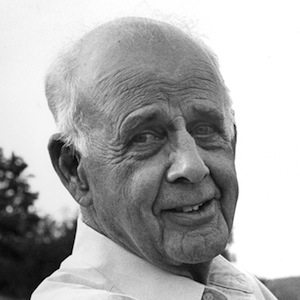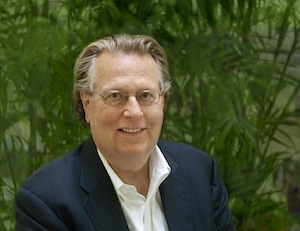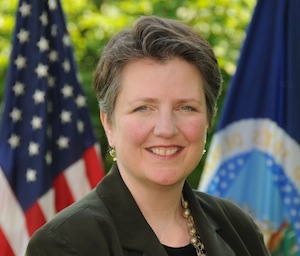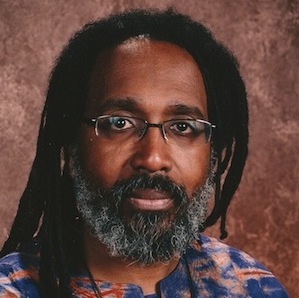Honorees
2012 JBF Leadership Award Recipients

(photo by Guy Mendes)
Wendell Berry, Author, Bringing it to the Table
For the brilliant insight he has brought to America's agrarian movement for more than six decades.
Read Wendell Berry's full profile on our blog.
Wendell Berry is the author of more than fifty books of poetry, fiction, and essays. In April 2012 Berry delivered the 41st annual Jefferson Lecture in the Humanities, the highest honor the federal government has for distinguished intellectual achievement in the humanities. He was recently awarded the National Humanities Medal, the Cleanth Brooks Medal for Lifetime Achievement by the Fellowship of Southern Writers, and the Louis Bromfield Society Award. For more than forty years he has lived and farmed with his wife, Tanya Berry, in Kentucky.

Dr. Jason Clay, Senior Vice President Market Transformation, World Wildlife Fund (WWF)
For his efforts to study and address the global social, environmental, and economic impact of a variety of commodities, and his cross-sector work to improve the sustainability and supply chain management of these commodities.
Read Dr. Jason Clay's full profile on our blog.
Dr. Jason Clay is World Wildlife Fund’s senior vice president for market transformation. He is a thought leader in the NGO community about global trends, supply chain management issues, and convening multi-stakeholder groups to work together on pre-competitive issues. Clay is a globally recognized expert on certification and food production. He created one of the world’s first ecolabels and helped develop standards for more than a dozen commodities through multi-stakeholder processes that reduce the impacts of production. Over the course of his career, Clay has run a family farm, taught at Harvard and Yale Universities, worked for the U.S. Department of Agriculture, helped create hundreds of products such as Rainforest Crunch with Ben & Jerry’s, and spent more than 30 years working with environmental and human rights organizations. Clay studied at Harvard University and the London School of Economics, and received his Ph.D. in anthropology at Cornell University. He founded the award-winning Cultural Survival Quarterly and is the author of more than 300 articles and 15 books, including World Agriculture and the Environment. In addition to his WWF role, Clay is the first-ever Food and Sustainability Fellow of the National Geographic Society.

Dr. Kathleen Merrigan, Deputy Secretary of Agriculture, U.S. Department of Agriculture (USDA)
For her efforts to strengthen the critical connection between farmers and consumers, create new opportunities for farmers and ranchers, support regional food infrastructure and bring agriculture into our daily conversations through efforts such as USDA’s Know Your Farmer, Know Your Food initiative.
Read Dr. Kathleen Merrigan's full profile on our blog.
Dr. Kathleen A. Merrigan is the deputy secretary of the U.S. Department of Agriculture. She oversees the day-to-day operation of USDA's many programs, spearheads the $149 billion USDA budget process, and serves on the President's Management Council, working to improve accountability and performance across the federal government. Merrigan has managed the USDA’s Know Your Farmer, Know Your Food initiative to highlight the critical connection between farmers and consumers and support local and regional food systems that increase economic opportunity in rural America. She served as assistant professor and director of the Agriculture, Food, and Environment graduate program at Tufts University, and was administrator of the USDA Agricultural Marketing Service. Merrigan also served as a senior staff member of the U.S. Senate Committee on Agriculture, Nutrition and Forestry. In 2009 she made history as the first woman to chair the Ministerial Conference of the Food and Agriculture Organization (FAO) of the United Nations. Recognizing the history and scope of her work, Time magazine named Merrigan among the 100 Most Influential People in the World in 2010. She holds a Ph.D. in environmental planning and policy from the Massachusetts Institute of Technology, a M.A. in public affairs from the University of Texas, and a B.A. from Williams College.

Tensie Whelan, President, Rainforest Alliance, and Co-Chair, Sustainable Food Lab Advisory Board
For overseeing the transformation of the Rainforest Alliance into a respected international organization that works to transform land-use practices, business practices, and consumer behavior to conserve biodiversity and ensure sustainable livelihoods.
Read Tensie Whelan's full profile on our blog.
Tensie Whelan is president of the Rainforest Alliance. She first became involved as a board member in 1990 and then served as a consultant, becoming the executive director in 2000. Whelan has worked in the environmental field for more than 25 years, during which time she served as the vice president of conservation information at the National Audubon Society and executive director of the New York League of Conservation Voters. She also worked as a journalist and consultant in Costa Rica; the managing editor of Ambio, a Stockholm-based international environmental journal; and as a consultant for nonprofit organizations such as the Environmental Defense Fund. Whelan serves on the advisory boards of Social Accountability International, Unilever Sustainable Sourcing Advisory Board, and is co-chair of the steering committee of the Sustainable Food Lab. She holds a M.A. in international communication from American University's School of International Service and a B.A. in political science from New York University. Whelan's published work includes one of the first books on ecofriendly tourism, Nature Tourism: Managing for the Environment. She has been recognized as one of the 100 Most Influential People in Business Ethics by the Ethisphere Institute, and was the recipient of the Wall Street Journal/Winning Workplaces Top Small Workplace Award for the Rainforest Alliance in 2008.

Malik Yakini, Executive Director, The Detroit Black Community Food Security Network (DBCFSN)
For his work to ensure social justice, food equity, and food security to the people of urban Detroit.
Read Malik Yakini's full profile on our blog.
Malik Yakini is a founder and executive director of the Detroit Black Community Food Security Network, which operates a seven-acre farm in Detroit. Along with DBCFSN he spearheaded efforts to establish the Detroit Food Policy Council, which he also chaired. Yakini was a member of the Michigan Food Policy Council, and serves on the steering committee of Undoing Racism in the Detroit Food System. From 1990 to 2011 he was executive director of Nsoroma Institute Public School Academy, one of Detroit’s leading African-centered schools. Yakini was honored as Administrator of the Year by the Michigan Association of Public School Academies in 2006, and served on the board of directors of Timbuktu Academy of Science and Technology from 2004 to 2011. He is also CEO of Black Star Educational Management. Yakini is dedicated to working towards identifying and alleviating the impact of racism and white privilege on the food system, and contributing to the development of an international food sovereignty movement. He has presented at numerous national conferences on food justice and implementing community food security practices. Yakini is also featured in the book Blacks Living Green and the movie Urban Roots, and is currently a Food and Community Fellow for the Institute for Agriculture and Trade Policy.

